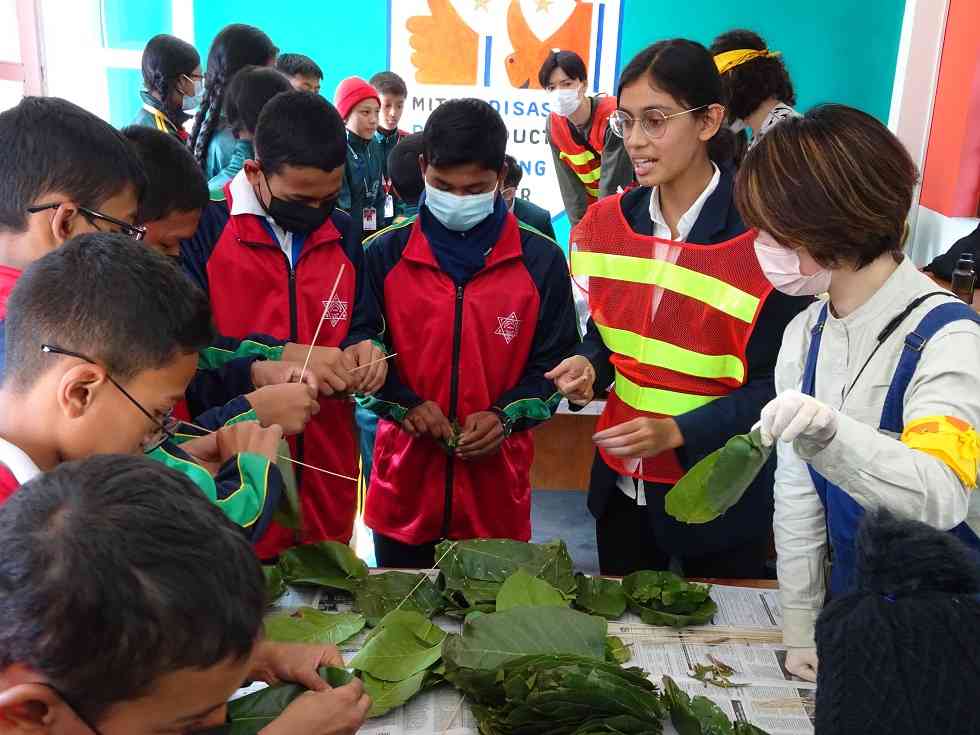Empowering Youth Leadership in Promoting Bosai in the Asia Pacific Region
The project targeted youths from Japan, Nepal and Thailand who underwent virtual trainings through specially designed modules on disaster education, preparedness and response. The sessions were based on the Japanese bosai practice of self-help and mutual-help to develop practical educational tools.
Description
CityNet has been engaged in disaster education since 2012 in various cities in Asia supporting teacher capacity building and raising awareness of students and communities through introducing disaster prevention or ‘bosai’ culture from Japan. To further disseminate the practice among youths (high school and university level), this project aimed to train youth leaders from various countries to jointly develop outreach programs that will empower youth leadership to enhance awareness of disaster risks and its proper understanding within the schools and community.
The main objective of this project was to build the capacity of youth leaders from three countries to become trained bosai specialists to disseminate the knowledge gained through Japan in their cities and communities through blended learning schemes thereby producing localized educational tools.
Did the Sendai Framework change or contribute to changes in your activities/organization? If so, how?
To further transform the Sendai Framework's priority No. 1 into actions, CityNet has been working on developing tools that allow children and adults to understand the risks better and the ways to mitigate them.
What led you to make this commitment/initiative?
What was your position before making this Voluntary Commitment / prior to the Sendai Framework?
Many of the disasters and losses that are happening are preventable and avoidable if only proper understanding and timely actions could be taken. CityNet focuses on risk prevention strategies through city-to-city cooperations as well as customized knowledge exchanges on DRR particularly from Japan. Our priority has been on city-to-city cooperation prior to the Sendai Framework as well.
Deliverables and Progress report
Deliverables
Deliverables are the end-products of the initiative/commitment, which can include issuance of publications or knowledge products, outcomes of workshops, training programs, videos, links, photographs, etc.
This was the first stage of this project where youths from Japan, Nepal, and Thailand representing various universities were introduced to disaster education programs and tools in Japan. The contents included self-help strategies that can be useful as preventive measures. Items such as knowing the evacuation routes, techniques for stockpiling food and water, and preparing emergency bags were some of the common practices shared by Japan. This stage was also a preparatory step to orient the youths on the remainder of the project activities which included presentations from the youths of all three countries as well as the field visits.
The second stage consisted of selecting international youths interested in knowledge exchanges with Japanese youths. University-level students from Nepal and Thailand joined online exchanges and shared their local practices, ideas and innovations in disaster prevention activities. Participating students took part in two online exchanges. Each group presented useful techniques using simple daily items that can be used during disasters such as making toilets from cardboard boxes and plastic bags.
The third and final stage involved two separate field visits
by Japanese students to Nepal and Thailand where they exchanged ideas on developing practical items that may be useful for disaster prevention and during disasters. The first group of Japanese students visited Nepal to directly engage with the youths of Nepal to discuss disaster education related topics. The main objective of this activity was to introduce practical goods made by Japanese and Nepalese university students to elementary school students. The university students demonstrated how dishes can be made from leaves, which saves precious water during disasters (no dishwashing necessary) and is biodegradable. Students also shared various emergency items which can be prepared in a bag.
Organizations and focal points
Implementing Organization(s)
Focal points
Partners
